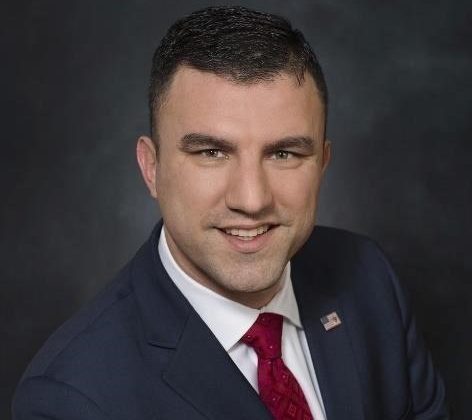Second District Congressman Rudy Yakym has reached out to the leaders of 136 U.S. colleges and universities with a direct request to address the issue of anti-Israel encampments on their campuses for the 2024-2025 academic year.
Yakym’s letters target institutions where similar anti-Israel encampments occurred last spring, events that led to a range of troubling incidents including violence, antisemitic graffiti, and disruptions within classrooms. The congressman is pressing these college presidents on several key issues, including their policies on managing encampments, measures to prevent disruptions to academic activities, and strategies for negotiating with those setting up such encampments.
The move underscores growing concerns about campus safety and the well-being of Jewish and Israeli students and faculty.
The full text of Rep. Yakym’s letter is below:
As you may know, on October 7, 2023, terrorists led by Hamas unleashed a wave of barbaric attacks in Israel. It was the deadliest single day for the Jewish people since the Holocaust, with 1,189 killed, thousands injured, and over 100 still hostage. Our fellow Americans are among the dead, wounded, and hostages. Hamas deliberately targeted civilians and children, subjecting them to unspeakable war crimes, including beheading, burning alive, rape, torture, and kidnapping.
This past spring saw the establishment of anti-Israel encampments on college campuses across the country. Your institution was among those with an encampment. While some were peaceful, there were, unfortunately, disturbing reports out of many encampments, including:
Verbal and physical harassment and intimidation directed toward Jewish and Israeli students and faculty, or those perceived to be Jewish or Israeli or supportive of the state of Israel;
Antisemitic signs and graffiti;
Violence;
Classroom disruptions;
Class location moved by the instructor to the encampment;
Blocked access to academic buildings for Jewish and Israeli students and faculty, or those perceived to be Jewish or Israeli or supportive of the state of Israel;
Detention of students seeking to access blocked academic buildings;
Occupation of academic or administrative buildings;
Destruction of property; and
Individuals not affiliated in any way with the institution being allowed to participate.
In many cases, these encampments appear to have violated institutional policies on protests and/or conduct, as well as federal and/or criminal statute, yet were allowed to fester. Such inaction degraded students’ educational experience and shrouded the campus atmosphere under a pall of intimidation.
I met with students who testified to their personal experiences with these encampments. They feared for their safety and felt the need to hide their religious beliefs. They also felt completely abandoned by their institution’s leadership, who opted to allow the encampments to grow and negotiate with them.
As students return to campus for the 2024-2025 academic year, we should not tolerate a repeat of the worst aspects of this past spring’s encampments. As such, I would like understand your institution’s policies with respect to encampments, encampment participants, and student safety, as well as any changes therein. Please send a written response to the questions outlined below by September 26th, 2024.
What is your institution’s policy regarding encampments established on campus grounds?
What changes, if any, have been made to this policy in the wake of this past spring’s encampment on your campus?
Many encampment participants evaded accountability by wearing masks. Has your institution changed its policy regarding masking? If so, what changes have been made?
What steps has your institution taken to ensure that that classes and academic settings will not be interrupted by any further attempted encampment activities?
In the event of a classroom disruption, how does your institution plan to ensure that students are not deprived of curricula due to lost instruction time?
What steps have you taken to investigate violations of your institution’s policies on protests and conduct by students and faculty participating in encampment activities?
Please describe disciplinary measures that were imposed, including number and type.
If your institution chose not to impose disciplinary measures, please explain why not.
What specific steps have you taken to ensure the safety of Jewish and Israeli students and faculty at your institution?
What avenues are available for students and faculty to report incidents of antisemitism on campus? Please describe steps your institution has taken to inform students and faculty of these reporting mechanisms.
What is your institution’s policy towards negotiating with encampments? Has this policy changed since the spring?
What is your institution’s policy toward individuals who are not students, faculty, or otherwise employees of the institution participating in encampments?
Free speech and exchange of ideas are fundamental to higher education in the United States. However, the harassment, threats, and intimidation of students and faculty and disruption of the academic experience witnessed last spring did nothing to further those ideals. In fact, they degraded them and threatened the reputation of universities everywhere.
Thank you for your prompt attention to this important issue, and I look forward to your response.

